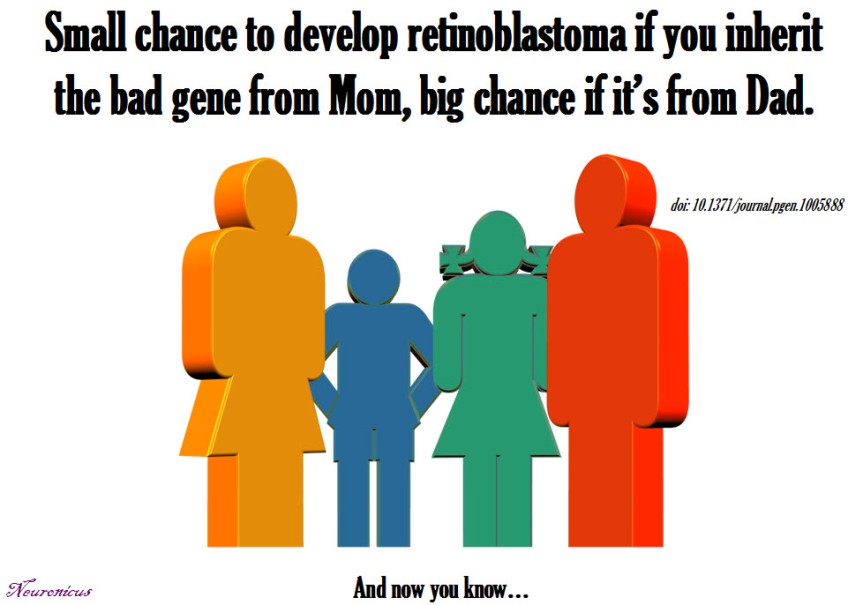Not all people with the same bad genetic makeup that predisposes them to a particular disease go and develop that disease or, at any rate, not with the same severity and prognosis. The question is why? After all, they have the same genes…
Here comes a study that answers that very important question. Eloy et al. (2016) looked at the most common pediatric eye cancer (1 in 15,000) called retinoblastoma (Rb). In the hereditary form of this cancer, the disease occurs if the child carries mutant (i.e. bad) copies of the RB1 tumour suppressor gene located on chromosome 13 (13q14). These copies, called alleles, are inherited by the child from the mother or from the father. But some children with this genetic disadvantage do not develop Rb. They should, so why not?
The authors studied 57 families with Rb history. They took blood and tumour samples from the participants and then did a bunch of genetic tests: DNA, RNA, and methylation analyses.
They found out that when the RB1 gene is inherited from the mother, the child has only 9.7% chances of developing Rb, but when the gene is inherited from the father the child has only 67.5% chances of developing Rb.
The mechanism for this different outcomes may reside in the differential methylation of the gene. Methylation is a chemical process that suppresses the expression of a gene, meaning that less protein is produced from that gene. The maternal gene had less methylation, meaning that more protein was produced, which was able to offer some protection against the cancer. Seems counter-intuitive, you’d think less bad protein is a good thing, but there is a long and complicated explanation for that, which, in a very simplified form, posits that other events influence the function of the resultant protein.
Again, epigenetics seem to offer explanations for pesky genetic inheritance questions. Epigenetic processes, like DNA methylation, are modalities through which traits can be inherited that are not coded in the DNA itself.

Reference: Eloy P, Dehainault C, Sefta M, Aerts I, Doz F, Cassoux N, Lumbroso le Rouic L, Stoppa-Lyonnet D, Radvanyi F, Millot GA, Gauthier-Villars M, & Houdayer C (29 Feb 2016). A Parent-of-Origin Effect Impacts the Phenotype in Low Penetrance Retinoblastoma Families Segregating the c.1981C>T/p.Arg661Trp Mutation of RB1. PLoS Genetics, 12(2):e1005888. eCollection 2016. PMID: 26925970, PMCID: PMC4771840, DOI: 10.1371/journal.pgen.1005888. ARTICLE | FREE FULLTEXT PDF
By Neuronicus, 24 July 2016

